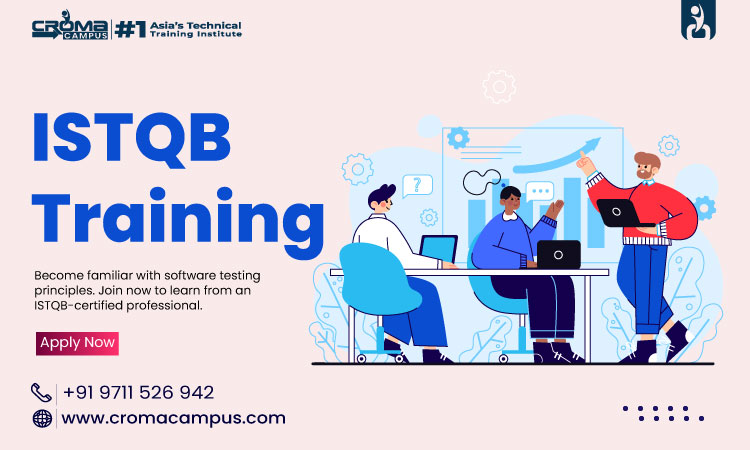If you are interested in software testing, you must be wondering how to get a certification. ISTQB Certification is awarded by the International Software Testing Qualifications Board (ISTQB) and demonstrates your proficiency in software testing principles and techniques.
In this article, we’ll explore what this Certification is all about, and how it can help you achieve your goals.
Getting Started with Certification
Ready to embark on your Certification journey? Here are some pointers to help you get started:
-
Understand the Certification Levels: ISTQB offers different levels of certification, including Foundation, Advanced, and Expert levels. Start by understanding the requirements and objectives of each level to determine which one is right for you.
-
Choose the Right Study Materials: There are many study materials available for ISTQB Certification, including textbooks, online courses, and practice exams. Choose materials that are suitable for your skill level and learning style, and make sure they cover the topics outlined in the ISTQB syllabus.
-
Learn the Fundamentals: Begin by learning the fundamental principles of software testing, like testing techniques, test management, and test tools. Focus on understanding key concepts and terminology to build a solid foundation for your certification journey.
-
Practice, Practice, Practice: The best way to prepare for Certification is by practicing with sample questions and mock exams. This will help you familiarize yourself with the exam format and identify areas where you need to improve.
-
Join a Study Group: Consider joining a study group or online forum where you can connect with other aspiring testers and share study tips and resources. This can provide valuable support and motivation as you prepare for your certification exam.
-
Take the Exam: Once you feel confident in your knowledge and skills, schedule your ISTQB Certification exam. Be sure to review the exam guidelines and requirements beforehand, and give yourself plenty of time to study and prepare.
How much does it cost?
The ISTQB Certification Cost India varies depending on several factors such as the level of certification (Foundation, Advanced, Expert), exam fees set by the certification body, and training provider fees if opting for training courses.
Generally, the cost for the ISTQB Foundation Level certification exam ranges from ₹6,000 to ₹10,000, while the Advanced Level certification exams may cost between ₹10,000 to ₹15,000 per exam.
Training courses offered by accredited training providers may have additional costs, ranging from ₹10,000 to ₹25,000 or more, depending on the duration, mode of instruction (online or offline), and study materials provided.
Overall, the total cost of obtaining certification in India may range from ₹6,000 to ₹40,000, depending on individual preferences and requirements.
Understanding key components of ISTQB
It is crucial for individuals seeking to validate their software testing skills and advance their careers in the field. Here are five points to consider:
-
Foundation Level: The Foundation Level certification covers fundamental concepts of software testing, including testing principles, processes, techniques, and management. It provides a solid understanding of software testing fundamentals and prepares individuals for entry-level testing roles.
-
Advanced Level: The Advanced Level certification offers specialized modules in areas such as Test Manager, Test Analyst, and Technical Test Analyst. It focuses on advanced testing techniques, test management, and automation, providing deeper insights into testing processes and methodologies.
-
Expert Level: The Expert Level certification is the highest level of certification offered by ISTQB and demonstrates mastery of software testing principles and practices. It requires extensive experience and expertise in software testing and offers specialized modules in areas such as Test Automation, Test Process Improvement, and Security Testing.
-
Exam Structure: Certification exams are typically multiple-choice format and conducted at authorized exam centers. Candidates must pass the exam to obtain certification, and the passing score varies depending on the certification level and exam module.
-
Renewal and Recertification: Certifications are valid for a certain period, after which candidates may need to renew or recertify their certification to maintain its validity. Renewal requirements vary depending on the certification level and may include continuing education credits or re-taking the exam.
Job Opportunities
-
Software Tester: Entry-level roles in software testing, including Test Engineer, QA Analyst, or Software Tester, where individuals perform manual and automated testing activities.
-
Test Manager: Leadership roles in test management, overseeing testing activities, coordinating test teams, and developing test strategies and plans.
-
Test Automation Engineer: Specialized roles in test automation, designing, developing, and maintaining automated test scripts and frameworks to improve testing efficiency and coverage.
-
Quality Assurance Manager: Management positions in quality assurance, responsible for establishing quality standards, implementing QA processes, and ensuring compliance with industry standards and regulations.
-
Consultant/Specialist: Consulting roles in software testing, providing advisory services to clients on testing best practices, process improvements, and tool selection and implementation.
Certification enhances career prospects and demonstrates proficiency in software testing, opening up diverse opportunities in the field.
Conclusion
Certification is a valuable credential that can help you advance your career and establish yourself as a skilled software tester. With the right approach and dedication, anyone can achieve Certification and unlock new opportunities in the field of software testing. So, are you ready to embark on your Certification journey? Happy testing and may your certification bring you success!

